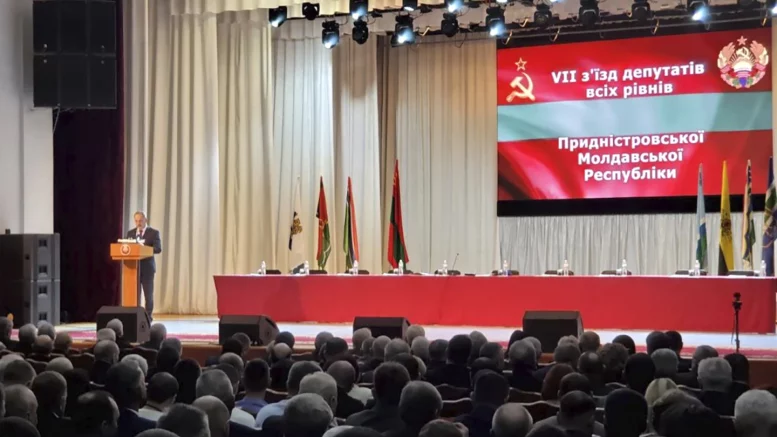In the Russia-backed breakaway region of Transnistria, tensions with Moldova’s pro-Western government have reached a critical point, prompting Transnistrian officials to appeal to Moscow for protection. Moldova, aspiring to join the European Union, recently implemented new customs duties on imports to and exports from Transnistria as of January 1, 2024. Transnistria, situated along the Ukraine border and unrecognized by any U.N. member countries, including Russia, views these duties as detrimental to local residents and businesses.
At a rare gathering in the regional capital, Tiraspol, members of the Transnistrian congress urged the Russian Duma to take action to defend Transnistria against increasing pressure from Moldova. They cited the presence of over 220,000 Russian citizens in Transnistria as a significant factor warranting Russian intervention. This appeal comes amidst historical tensions stemming from a short war in the early 1990s, which led to the declaration of a breakaway state in Transnistria, where Russian troops remain stationed as “peacekeepers.”
Moldova’s efforts to align its economic legislation with the EU, in pursuit of full membership, have further strained relations with Transnistria. Officials in Tiraspol have appealed to the European Parliament, the U.N. secretary-general, and the International Committee of the Red Cross to prevent Moldova from violating the rights of local residents. Speculation arose before the recent meeting in Tiraspol that Transnistria might announce a bid to join Russia, which Moldova’s government dismissed as propaganda, denying any imminent escalation.
Alexander Korshunov, chairman of the Transnistrian Supreme Council, accused Moldova of exploiting the geopolitical situation and using economic pressure as a tool to undermine Transnistria’s statehood. Russian Foreign Ministry spokesperson Maria Zakharova dismissed annexation speculations, while Transnistria’s past referendum favoring joining Russia remains unacknowledged internationally. Despite Moldova’s progress toward EU candidacy and accession negotiations, tensions persist between Moldova’s pro-Western leaders and Russia, exacerbated by Russia’s invasion of Ukraine in 2022.
Transnistria, with a population of approximately 470,000, maintains its own currency and flag, existing as a thin strip of territory between the Dniester River’s eastern bank and Moldova’s border with Ukraine. Moldova’s accusations of Russian campaigns to destabilize the country underscore the ongoing geopolitical complexities in the region, rooted in its Soviet past.

